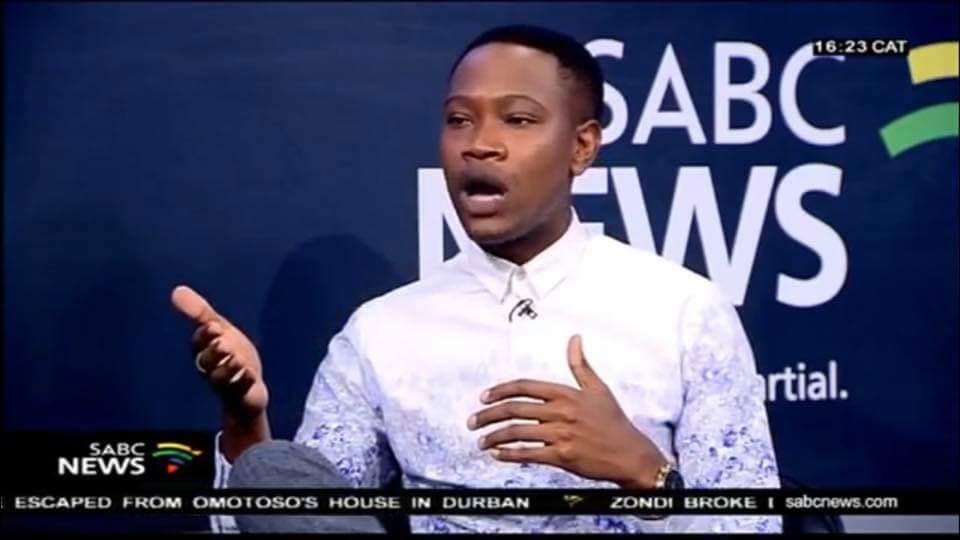In a move that signals a major leap forward in generative AI, OpenAI has quietly rolled out ChatGPT-5, its most advanced model to date….
What Skinny Sbu saga tells us about backing black entrepreneurs [Opinion]

Late last month, SA social media was briefly consumed with a TV interview in which entrepreneur Sibusiso Ngwenya asked for R5-million in funding.
In the interview, the Skinny Sbu Socks founder (pictured above) detailed why his business has struggled, but also brushed off an offer of advice from Thulani Thabethe from 2Larnie Solutions.
This is problematic. If we’re going to grow a culture of entrepreneurship in South Africa, we need more Thulanis and entrepreneurs like Sibusiso to listen to them.
Because if South Africa has entrepreneurs who are not only willing to take the leap of starting their own businesses, but can do so in a way that produces sustainable growth, the country only stands to benefit, not just economically but socially as well.
The Skinny Sbu saga shows that young entrepreneurs need to know that they have somewhere to go when it does
Fortunately, we’re in a better place than ever to foster this kind of entrepreneurship.
According to a Global Entrepreneurship Monitor (GEM) report, early-stage entrepreneurial activity in South Africa is higher than it’s been at any point since 2013. At the same time, youth still make up the majority of entrepreneurs in the country, meaning it’s seen as a viable option for young people and some cases the only option.
There are, in other words, plenty of young people — just like Sibusiso Ngwenya — who’ve spotted an opportunity and gone after it.
But if they’re going to succeed, they need access to support, networks, and mentorship far more than they need money sometimes.
Know-how, willingness to learn
A great example of this comes from Nic Haralambous, who plays in the same space as Skinny Sbu. He was able to launch his online sock business with just R5000.
Using the know-how from his previous business ventures, business and media networks, and a willingness to learn, that online sock business has become a lifestyle brand with floorspace in some of South Africa’s most exclusive retail locations.
Were Haralambous seeking investment — something he’s avoided with this particular venture — he could probably get it fairly easily.
He has the fundamentals in place, his operation is tight, and he can account for each decision he’s made. Granted Haralambous may have had advantages that Ngwenya didn’t but growing a business means listening, and he did that.
It’s a way of doing business far more likely to result in long-term success, especially in the South African context.
If all you’re doing is seeking out funding, based on a hyper-inflated Silicon Valley-style valuation, you’re going to miss out on those fundamentals.
Admittedly, Haralambous has had more space to learn than most (he doesn’t necessarily have an extended family depending on him for income), but that only underlines the need for support networks among young, black entrepreneurs.
Getting around black tax
How do you build a sustainable company in the world of black tax?
Young entrepreneurs need people who can guide them through the tough, first few years when there may not be any profit.
They need people who can help them understand that failure is something to be learned from, rather than an unmitigated disaster. They need people who can help them reinvest profit into the business as well as manage responsibilities.
If Ngwenya knew he could lean on a support network, would he be on television asking for funding? Would he not use his network to figure out where the problem is? Does the company need better business development?
Does it need a board of advisors who can help manage its cash-flow? What operational improvements could it make?
While Ngwenya’s bizarre interview attracted a lot of attention, we shouldn’t just view it as an example of an entrepreneur going off the rails – it’s not. Instead, it should be seen as an opportunity to have some tough discussions about entrepreneurship.
We’re quick to celebrate entrepreneurial success, lapping up glowing profile in business and lifestyle publications.
But entrepreneurship is hard. It exacts a toll. Young entrepreneurs need to know that they have somewhere to go when it does.
Mich Atagana is Google SA’s head of public affairs and communication. She writes this in her personal capacity.
Featured image: Facebook

